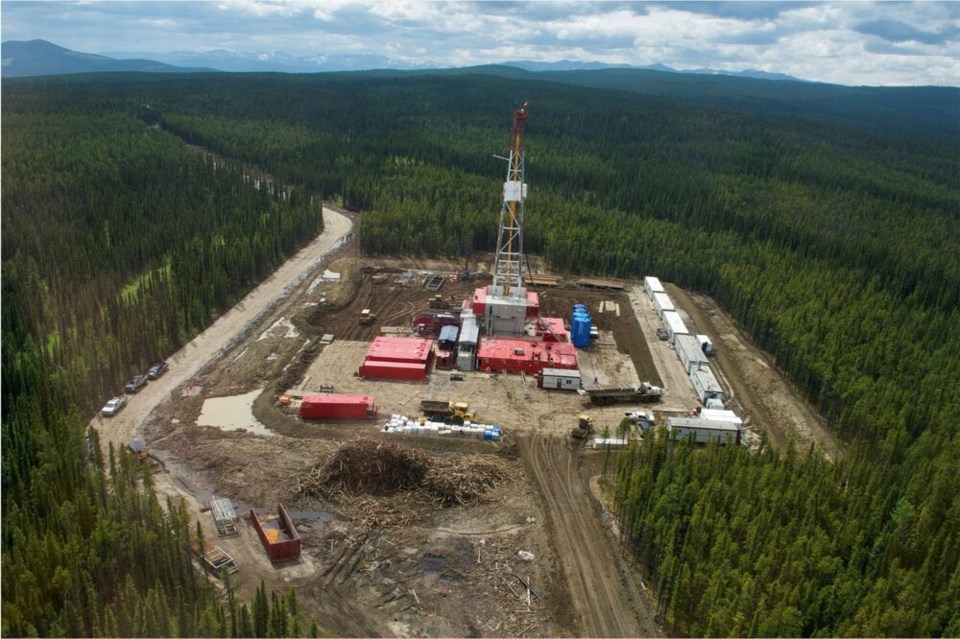More than three-quarters of British Columbians polled in a self-selected government survey agree the province's oil and gas royalty program is outdated and "broken."
The results, detailed in a 77-page released Monday, collect input from over 5,000 emails, written submissions and questionnaires of B.C. citizens who reached out as part of the provincial government's public engagement process to inform an overhaul of its oil and gas royalty system.
The government scheme, which has handed out at least $10 billion in credits to the fossil fuel industry over the past three decades, has come under criticism due to the rising toll of emissions on global heating.
"The message is clear: What may have worked 30 years ago does not work today, and a new approach is essential for our future," Minister of Energy, Mines and Low Carbon Innovation Bruce Ralston said in a prepared statement.
"I want to thank everyone who took the time to participate, helping to shape the way we move forward."
Last year, the provincial government initiated a to overhaul the royalty scheme. The government says it triggered a review of the royalty program so British Columbians get a fair return on oil and natural gas revenue; the province also says it's looking to ensure the program aligns with its goals on reconciliation and protecting the environment.
Last October, a government-commissioned independent assessment examining the found nearly 36,000 active oil and gas wells in the province, with another 8,600 authorized for drilling. Almost all of them are on Crown land leased to drilling and extraction companies.
By lowering well-operating costs, the royalty programs create incentives to drill wells that otherwise would not have existed, note the authors of the independent assessment, "increasing land and ecosystem disturbance."
"There is a fundamental question of how much the Crown should offset the costs of fossil fuel development given its multiple objectives," wrote the authors.
The independent report was released the same month that research from the University of British Columbia found thousands of oil and gas wells also fall within federally designated critical caribou habitat for two of the most threatened woodland caribou populations. The researcher's conclusion: "Public funds are ."
British Columbians were asked to comment on the independent review as part of the public engagement process.
Overall, a majority of respondents said current royalty rates were too "too low and do not reflect the true cost of oil and gas extraction."
Most who wrote in said the royalty program made environmental degradation and water pollution worse and that it was "at odds with the B.C. Government's stated priority of environmental protection and decarbonization."
A large majority of respondents (77 per cent) agreed with the independent assessment's finding that the outdated program needed an overhaul — environmental protection, they said, should be the most important goal.
Another 69 per cent of respondents said they were in favour of an overhaul as soon as possible with no "grandparenting."
In a Nov. 10 offering background and three proposed options for a renewed system, the province states that growing natural gas production has made achieving oil and gas emission reduction targets "a challenge." Instead of addressing the emissions gap through a new royalty program, carbon pricing and new technologies should lead the way, says the Ministry of Energy, Mines and Low Carbon Innovation.
Over two months later, the survey results found most respondents favoured moving to a flat rate royalty system, where industry could not recover capital costs. By not tying the cost of extraction to a fluctuating oil and gas market, the province could more accurately reflect the environmental and climate costs of production, said 41 per cent of respondents.
Nearly three-quarters of those who wrote in were from the Lower Mainland or Vancouver Island.
On the other hand, responses from industry representatives tended to accept modest changes to the scheme, with "a retention of the current system as much as possible."
Public engagement surveys do not bind the government to any action. In a recent example, the province moved to extend a wolf cull program designed to protect endangered caribou for another five years, despite the government receiving widespread opposition in a public engagement survey.
The Ministry of Energy, Mines and Low Carbon Innovation is expected to release the results of its oil and gas royalty review by spring 2022.




